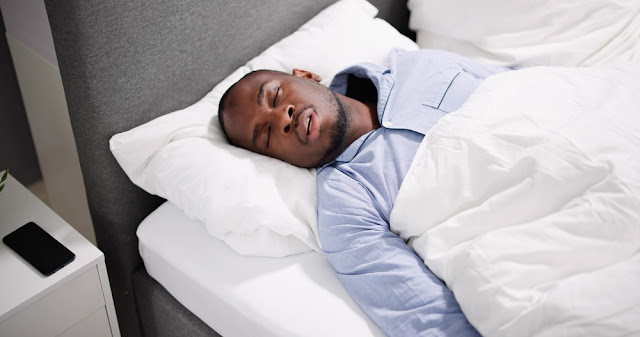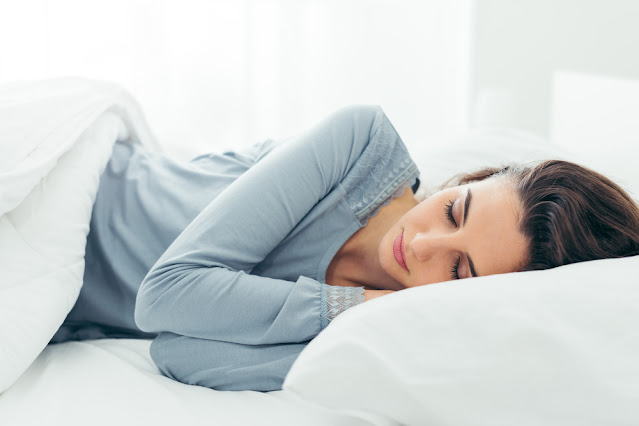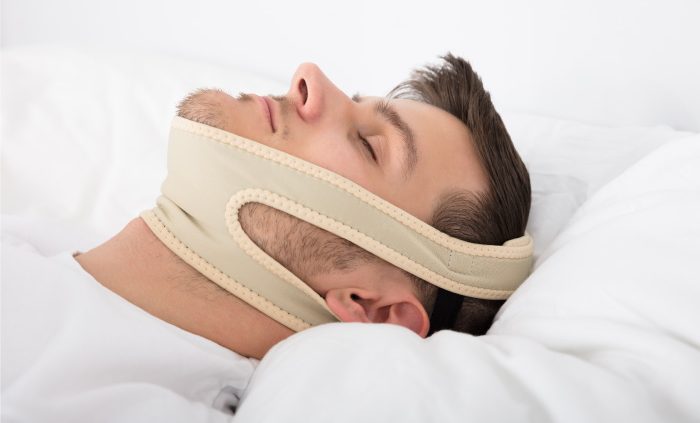Sleep Apnea is a
common problem with breathing at night that affects more than 15 million people
in the United States. Sleep apnea can affect both men and women of any age, and
it can even affect children. Without treatment, living with the disorder can
cause serious problems, such as daytime sleepiness, a higher risk of heart
attack and stroke, mood disorders, and trouble getting things done during the
day. Most people with sleep apnea don't know they have it, even though their
sleep is often broken during the night. People with sleep apnea will wake up
many times during the night because their oxygen flow is cut off or limited.
When people with apnea wake up, their breathing returns to normal, but they
don't become fully awake. The apneic events can keep happening without the
person being aware of it because they are not fully awake or aware that they
are waking up during the night. When you have sleep apnea, your breathing may
stop or slow down hundreds of times during the night.
People often say
that daytime sleepiness is a sign of sleep apnea. Sometimes it's so bad that people say
they've fallen asleep at work or while driving. Other common complaints include
not being able to focus and not being able to think quickly, which can make it
hard to do well at work and make life feel empty. "Apnea" in Greek
means "without breath." Obstructive Sleep Apnea (OSA), which is the
most common type and Central Sleep Apnea are the two types of Sleep Apnea.

Obstructive
Sleep Apnea happens when the airway in the back of the throat gets blocked. When
the muscles in the throat relax, the soft palate also relaxes. This makes the
airway smaller. Snoring is also caused by the same chain of events, but not
everyone who snores has obstructive sleep apnea. As a person breathes in
through their mouth or nose, the airway gets smaller or even closes completely,
making it harder to breathe. The restricted airflow makes the person feel like
they are gasping for air, which wakes them up for a short time. While only half
awake, breathing returns to normal. This constant blockage of the airway can
happen several times an hour, and the same thing can happen over and over again
all night, making it hard to sleep.
Central sleep
apnea happens when your brain doesn't tell your body to breathe when it should.
Central Sleep Apnea gets its name from the Central Nervous System, which
controls all the important functions of the body. This instability in the
brain's center for controlling breathing can be caused by a number of things,
but the most common are problems with the central nervous system or a stroke.
Central Sleep Apnea can also happen to people who have heart failure or other
problems with their heart or lungs.
Who is affected by apnea...
Sleep apnea can
happen to both men and women of any age, and it can even happen to children.
Men are at greater risk. If you are overweight and older than forty, your risk
goes up. A large neck size is also a risk factor. For men, this means a neck
size of 17 inches or more, and for women, a neck size of 16 inches or more. If
you have big tonsils or a lot of tissue in the back of your throat, it can make
it harder to breathe and put you at greater risk. The fact that obstructive
sleep apnea can run in families suggests that it may have something to do with
genes.
How your body and mind are affected by
apnea...
Sleep apnea can
have many different effects on your body and mind, from being mildly annoying
to putting your life in danger. One effect is that people sleep a lot during
the day. Most people don't know when they drift off for a moment or two, but
the effects can be terrible. People with ADHD may have trouble focusing, forget
things more often, or have trouble learning new things. Some of these sleep
apnea symptoms are so similar to depression symptoms that they can be hard to tell
apart. These symptoms include personality changes, irritability, mood swings,
memory problems, feeling tired, and maybe even feeling sad.
What to look for...
A sore or dry
throat in the morning is often a sign of obstructive sleep apnea. People with
apnea often wake up several times during the night, sometimes because they
snore or because they feel like they are choking or gasping because their
airway is blocked. These times when they wake up at night keep them from
sleeping and make them sleepy during the day, which is another well-known
symptom. Some other signs may also be present, such as forgetfulness, changes
in mood, headaches, or less desire to have sex. People with central sleep apnea
may have many of the same symptoms as people with obstructive sleep apnea.
How is it found out?
Only a medical
professional can diagnose Sleep Apnea. If you think you have sleep apnea or
have some of the common signs, you should see a doctor. Your doctor may suggest
that you get a sleep test to find out what's causing your symptoms. A
polysomnogram or a Multiple Sleep Latency Test is usually part of the test.
During the night, a polysomnogram will use electricity to track your heart
rate, breathing, and muscle activity. The electronic records will be looked at
by a sleep specialist and your health care provider. A Multiple Sleep Latency
Test (MSLT) will just find out how long it takes you to fall asleep or if you
tend to fall asleep when you should be awake. During the sleep study, if sleep
apnea is found, you may be asked to come back for more tests to figure out the
best way to treat it.
What to look for...
Most of the
time, sleep tests are done in hospitals or sleep centers. When you get there,
you'll have your own private room, which may look more like a home than a
hospital. Some hospitals or centers let you sleep in your own clothes, which
can help you feel more relaxed and at ease. Your room will be close to the area
where the sleep technicians can watch what the polysomnograph is showing them.
When it's time for you to go to sleep, the technicians will put the monitoring
devices on you. Most people don't have much trouble sleeping with them on
because they only have a few electrodes, a belt to track your heart rate and
breathing, and a fingertip oximeter to measure how much oxygen is in your
blood.
If your doctor
wants you to have an MSLT, it will probably take place at a sleep center or
hospital. The purpose of the test is to find out how long it takes you to fall
asleep or if you tend to fall asleep when you should be fully awake. A sleep
technologist will videotape you while you sleep to keep track of how you move
during the night or how often you fall asleep when you should be awake.
What should we do?
Sleep apnea can
be treated in many different ways, from simple lifestyle changes to major
surgery.
Continuous
Positive Airway Pressure is the most common way to treat asthma (CPAP). A CPAP
machine has a mask that fits you perfectly and goes over your mouth and/or nose
while you sleep. The machine keeps sending air into your nose all the time. The
pressurized air that flows into your airways keeps your airways open so that
you can still breathe while you sleep.
Dental devices
can help some people with obstructive sleep apnea. These devices are made to keep your
airways open while you sleep. Dentists who specialize in treating obstructive
sleep apnea make the devices fit the person who wears them.
Surgery is also
a possible way to treat apnea. Most surgical options involve procedures that
try to make the upper airway wider.
People with
sleep apnea may be told to make changes to how they live. Some suggestions
might be to lose weight to make the throat less tight. It is also best to stay
away from alcohol, over-the-counter sedatives, and other unnecessary sedatives,
as these can make the muscles in the back of your throat even more relaxed.
How to act?
See your doctor
if you think you have any of the above symptoms, like feeling sleepy during the
day, snoring and gasping, getting headaches in the morning, or waking up during
the night. Sleep apnea can only be found by a trained doctor or nurse. Your
doctor will look into why you can't sleep and may send you to a sleep
specialist, who has special training in sleep medicine. Sleep apnea is a
serious medical condition that can cause other problems, like high blood
pressure, a heart attack, an irregular heartbeat, or a stroke, so it's best to
get treatment as soon as possible.









